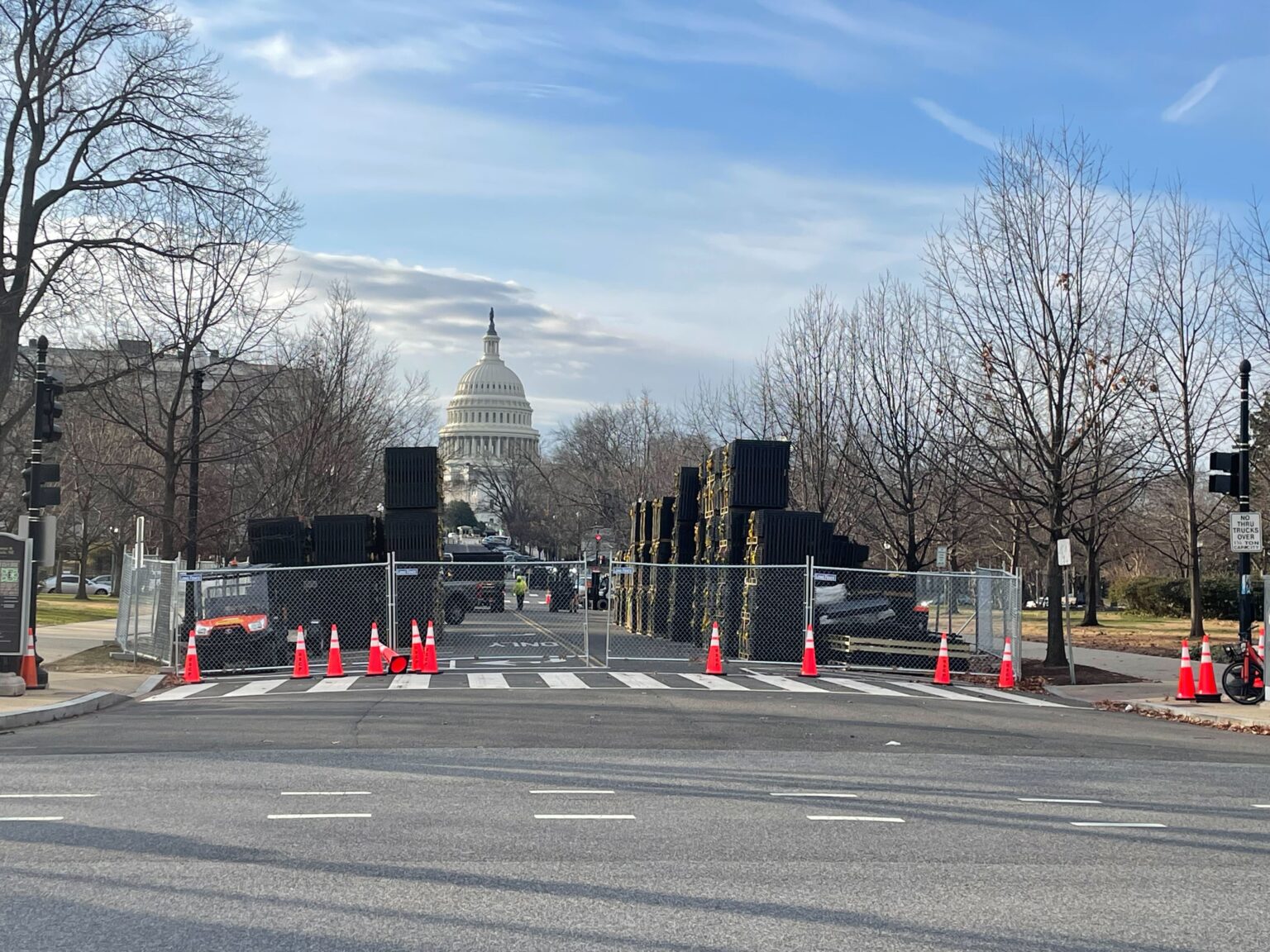Washington Immigration lawyers and experts caution that a bill that the U.S. Senate is moving to pass this week could have far-reaching effects, including flooding federal courts with challenges from state attorneys general and subjecting certain migrants, including children and teenagers, to swift detention and deportation.
If passed into law, the Laken Riley Act, S. 5, would significantly increase the number of immigrants detained and allow state attorneys general considerable latitude to contest federal immigration policies.
By requiring the U.S. Department of Homeland Security to detain a noncitizen on an arrest, charge, or conviction of petty theft in response to the murder of the 22-year-old Georgia nursing student for whom the bill is named, experts fear that the bill would support President-elect Donald Trump’s campaign pledge to implement mass deportations.
When Laken Riley did not come home from her run, her housemates started to worry. Last month, Jose Antonio Ibarra, a 26-year-old Venezuelan immigrant, was found guilty of her murder and given a life sentence. He allegedly entered the nation illegally in 2022 and was accused with shoplifting, but U.S. Immigration and Customs Enforcement did not hold him.
The bill has garnered bipartisan support, with 48 U.S. House Democrats voting with Republicans to adopt it during a presidential election where immigration was a major issue. In a procedural vote to advance the bill, a resounding 32 Senate Democrats and one independent supported the Republicans.
Although it’s unclear if Senate Republicans will accept that procedure, Senate Democrats have maintained that the procedural vote is a chance to discuss the bill and add modifications.
Prior to the procedural vote, Senator Katie Britt of Alabama, the bill’s primary sponsor, stated on the Senate floor that the law is essential because it is simple.
Britt stated, “I want to be very clear that only criminal illegal aliens would be subject to this bill.” After illegally crossing our border, these people committed a crime once they were here. That’s the person we’re discussing.
However, immigration lawyers contend that the bill would not only impact those without documentation, but also ensnare some legal immigrants, result in the detention of minors, contest the release and bond rulings of immigration judges, and potentially impede the international visa-issuing process.
They claim that the bill is problematic since it defines individuals who are impacted as inadmissible immigrants.
According to Nithya Nathan-Pineau, a policy lawyer and strategist with the Immigrant Legal Resource Center, this will encourage mass deportations.
Because U.S. law does not guarantee immigrants a counsel, she added, if someone is imprisoned and unable to defend themselves, they may easily be found guilty.
They could then be deported as a result of that conviction, she warned. Its purpose is to divert individuals into detention in order to facilitate their deportation.
Since immigrant neighborhoods have historically been highly policed and more prone to interact with law enforcement, Heidi Altman, federal advocacy director at the National Immigration Law Center, expressed her concerns about the bill.
According to her, there are still significant racial discrepancies in arrests and police in the US, therefore it is obvious and inevitable that based immigration detention on an arrest will introduce even greater racial inequities from the criminal justice system into the immigration system.
The bill would grant state attorneys general extensive legal standing to contest federal immigration law if it were to become law. That clause seeks to get around a recent ruling by the U.S. Supreme Court, according to Aaron Reichlin-Melnick, a senior fellow at the left-leaning think tank American Immigration Council.
The Supreme Court decided in a 2023 case that Texas and Louisiana lacked standing to contest the Biden administration’s deportation goals.
The law would also give those state attorneys general the ability to challenge immigration judges’ bail rulings.
“That kind of legal power given to attorneys general would undermine the authority of immigration judges and swamp the federal courts with decisions that have already been made by immigration judges being revisited,” Altman said, adding that the U.S. immigration courts are already overburdened.
“Any state attorney general with a political agenda can question any decision made by any state attorney general at any time, so you can’t have a functioning judicial system of any kind,” she said.
According to Reichlin-Melnick, such power might affect world diplomacy.
In order to force the U.S. State Department to stop awarding visas to a nation that refused to accept citizens who were eligible for deportation, those state attorneys general could request a federal court injunction. Russia, China, Cuba, and India are a few of such nations.
According to Reichlin-Melnick, this might lead to a single state attorney general and a single federal judge setting foreign policy for other nations worldwide and possibly compel the secretary of state to impose broad visa prohibitions on citizens of entire nations.
According to Altman, the ability of a state to suspend visas may be one of the most disruptive to the operation of the broader government and international relations.
In addition to the destabilizing effect it would have on the ability of individuals from any targeted country to continue traveling to and from the United States for various reasons that are crucial to trade and the economy, such as work visas and student visas, there are concerns about (a) foreign nations’ ability to trust that the federal government actually has any uniform control over visa policy, she said.
Altman stated that although the Republican-sponsored bill seeks to mandate mandatory detention of undocumented immigrants who are arrested, charged, or found guilty of theft, shoplifting, or burglary, it may also affect those with discretionary legal status, such as those on parole or enrolled in the Deferred Action for Childhood Arrivals program, or DACA.
“The Department of Homeland Security has the discretion and authority to terminate DACA status at any time on any basis, and that is written right into the (DACA) regulation,” she said. Therefore, if the Laken Riley Act were to be passed and mandate the mandatory detention of individuals who have committed theft, a Trump administration would probably result in the DACA recipient being placed under arrest and DHS having the power to simultaneously terminate their DACA status.
Nathan-Pineau went on to say that recipients are at risk because deferred action could be revoked at any time due to ongoing legal challenges to DACA’s legitimacy.
Unless they were deemed removable due to a violation of immigration law, immigrants with a green card—also referred to as Lawful Permanent Residents—would not be subject to the obligatory detention requirement, Altman stated.
“We would argue that TPS recipients could not be subject to (the bill), but as it’s written it’s quite ambiguous,” Altman said of the more than 1 million people who have Temporary Protected Status, which allows them to work and live in the United States because their country is considered too dangerous to return to.
Nathan-Pineau brought out the fact that the law would require detention for young immigrants and would not offer them a carve-out.
“Children are not an exception,” she stated.
As an immigration lawyer, Nathan-Pineau said she frequently represents young people accused of stealing groceries.
According to her, that is among the most frequent exchanges between law enforcement and my teenage clients.
Altman stated that while DHS has extensive jurisdiction to detain immigrants, this measure expands a particularly punitive kind of imprisonment known as mandatory detention because those imprisoned under this authority are not even allowed to request a bond hearing.
“This bill expands that category of detention for people just on the basis of an arrest or a charge, regardless of whether that arrest ever results in a conviction,” she said, referring to their compulsory custody. In terms of American law, that is pretty harsh.
Reichlin-Melnick pointed out that there is no time restriction on when the petty theft accusation is applicable under the bill.
“You would be (considered for) mandatory detention if you were arrested for theft when you were 13 and you are currently an undocumented immigrant who has been in this country for 30 years and you apply for a Green Card through your spouse,” he said.
According to Nathan-Pineau, mandatory imprisonment is already in place for immigrants who have committed quite serious crimes that do not fall under the category of property crimes.
If the bill had passed, Nathan-Pineau said, it would have necessitated the detention of one of her former clients. After her abuser refused to give her money for groceries to feed her children, the client—a mother in an abusive situation—shoplifted and was taken into custody, according to Nathan-Pineau.
According to her, they are the kinds of things we want individuals to consider when considering burglary and other property crimes. When someone commits these types of crimes, they may spend months or even years in detention.



